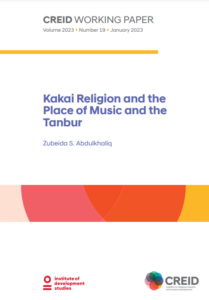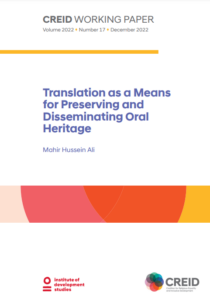This paper by Varteen Hanna Shaba aims to explore how to define and classify idioms, and suggests specific strategies and procedures to translate idioms from the NENA dialect Bartella (a local Aramaic dialect in Nineveh Plain) into English – as proposed by Baker (1992: 63–78).
Northeastern Neo-Aramaic (also known as NENA) languages and literature are a prosperous and encouraging field of research. They abound with oral traditions and expressions that incorporate various spoken forms including everyday language, tales, songs, chants, prayers, proverbs, and more. These are used to transfer culture, knowledge, and community values.
Some types of oral forms are idioms and fixed expressions.
Idioms are extremely problematic to translate for a number of reasons, including: cultural and linguistic differences between languages; their specific connection to cultural practices and interpretations, and the difficulty of transferring the same meanings and connotations into another language with accuracy. Data collection is based on 15 idioms in Bartella dialect taken from the heritage play Khlola d baretle teqta (Wedding in the old Bartella). The findings revealed that only three strategies are helpful to transfer particular cultural conceptualisations: using an idiom of similar meaning and form; using an idiom of similar meaning but different form, and translation by paraphrasing.
Based on the findings, the author provides individuals and institutions with suggestions on how to save endangered languages and dialects, particularly with regard to the religious minorities’ heritage. Key among these recommendations is encouraging researchers and scholars to direct translation projects and activities towards preserving minority languages with their oral heritage and cultural expressions, which are susceptible to extinction.
Cite this publication
Shaba, V.H. (2023) Translating Northeastern Neo-Aramaic Idioms into English, CREID Working Paper 20, Coalition for Religious Equality and Inclusive Development, Brighton: Institute of Development Studies DOI: 10.19088/CREID.2023.002


